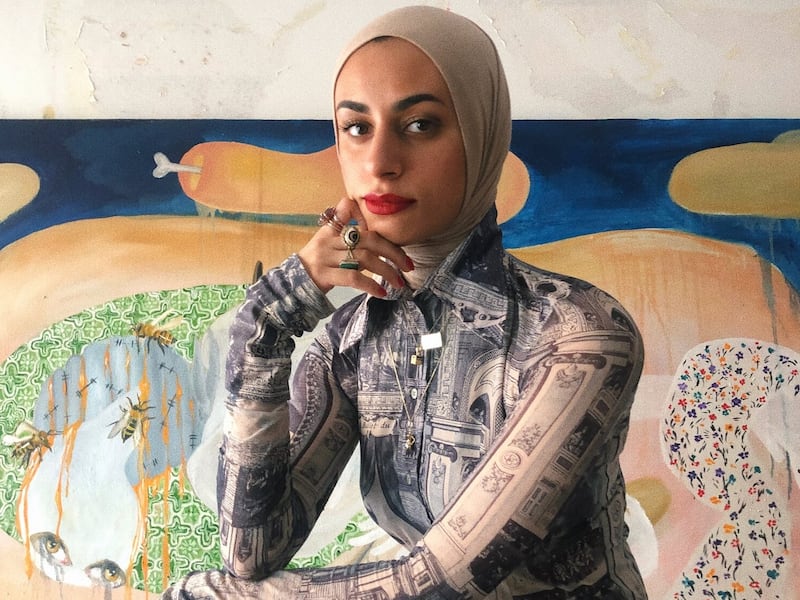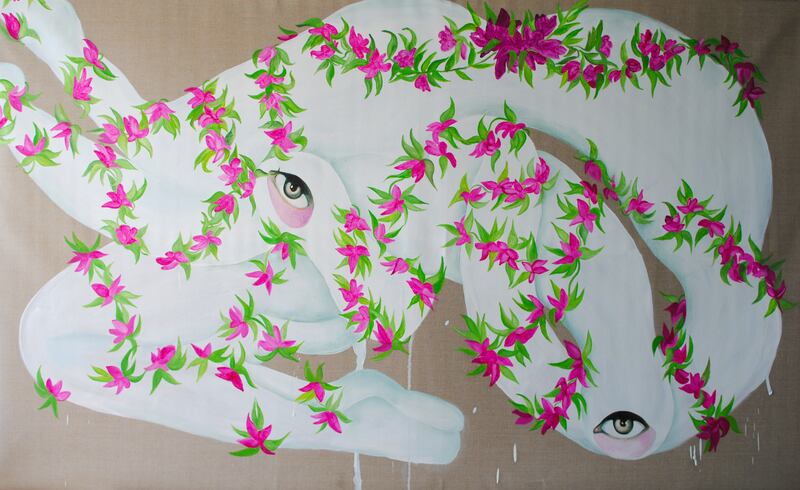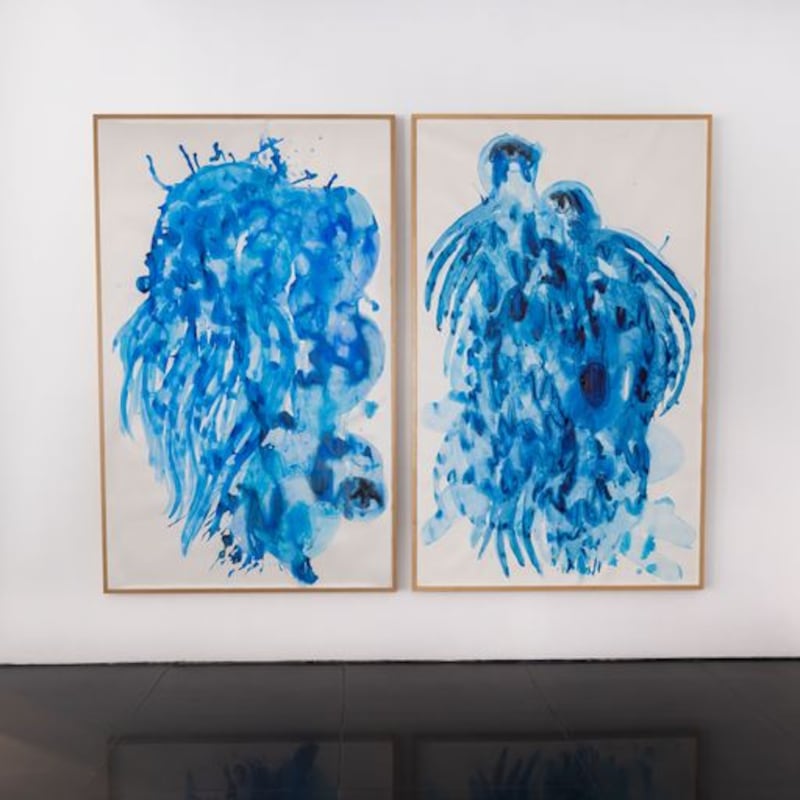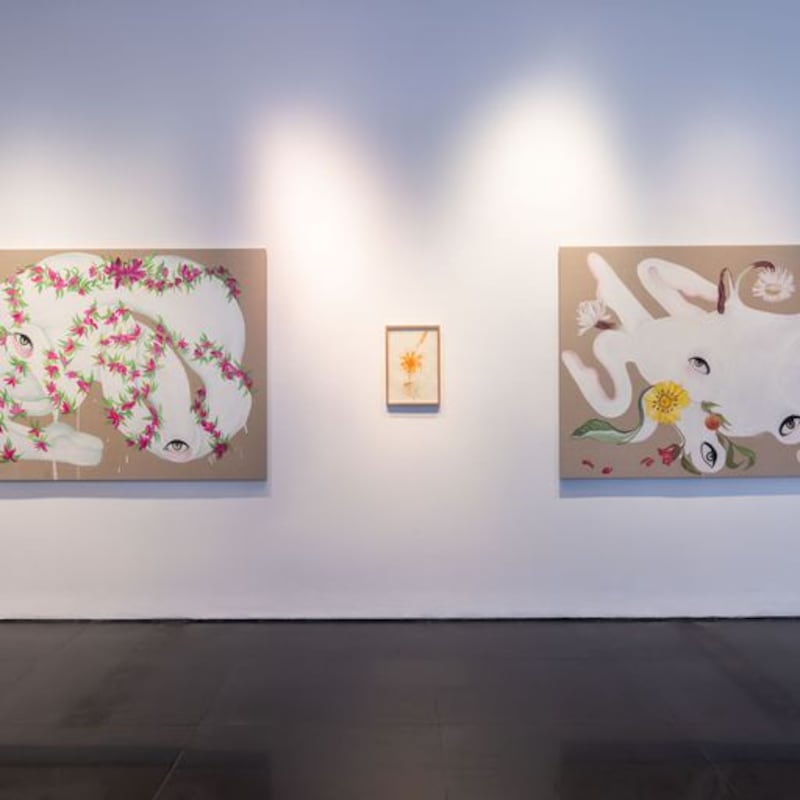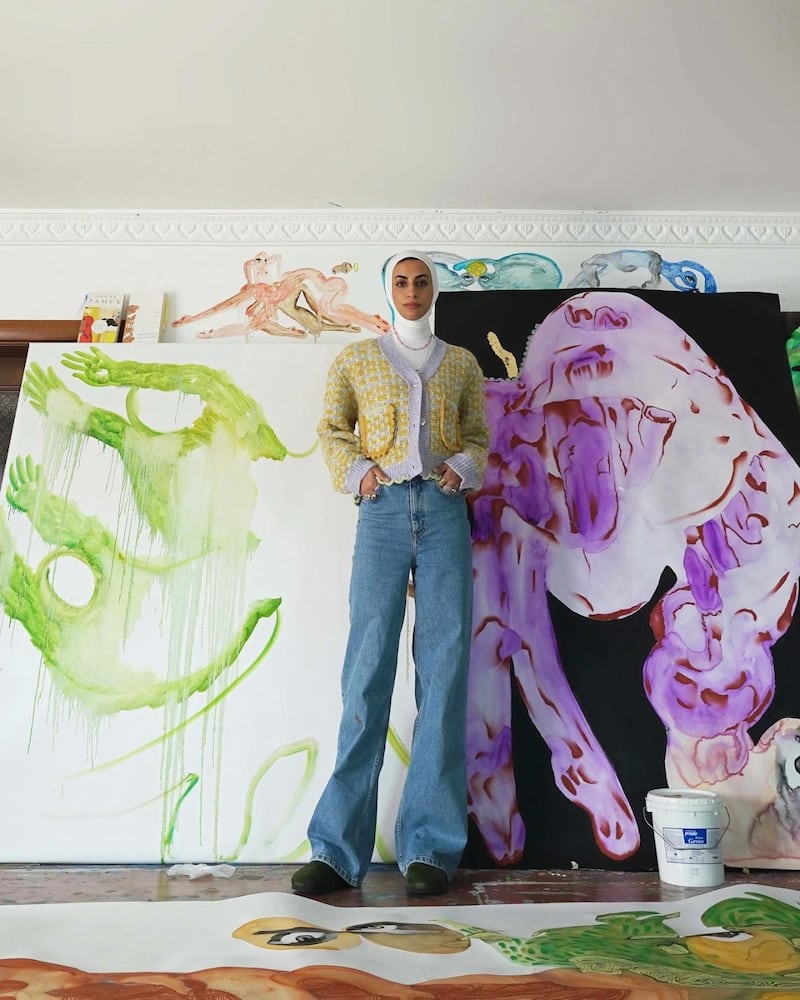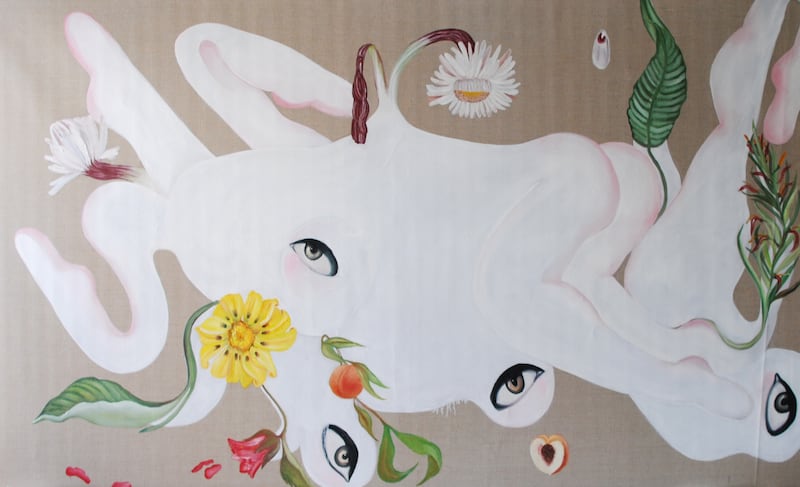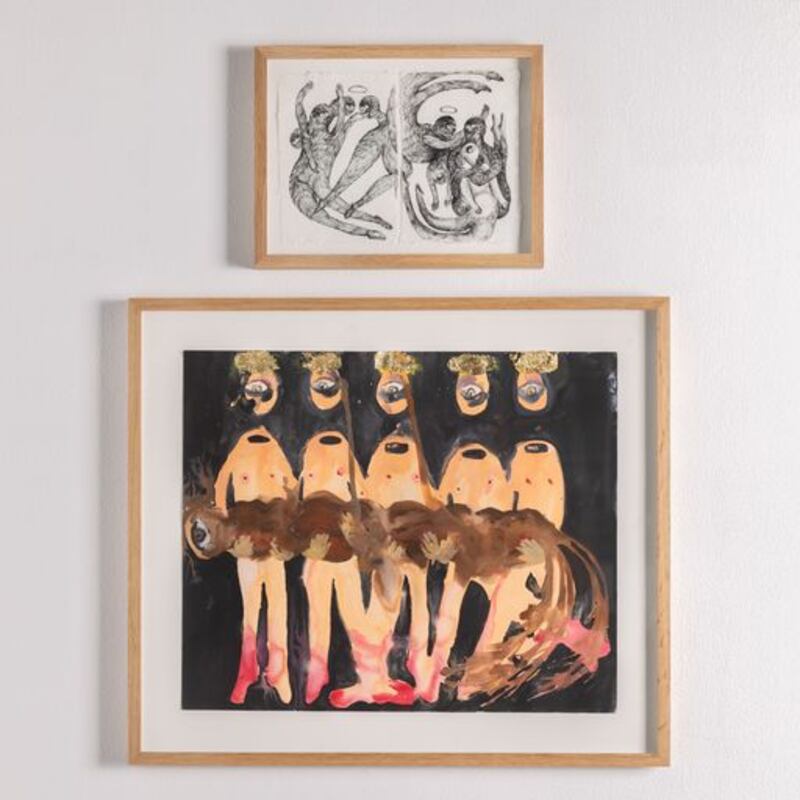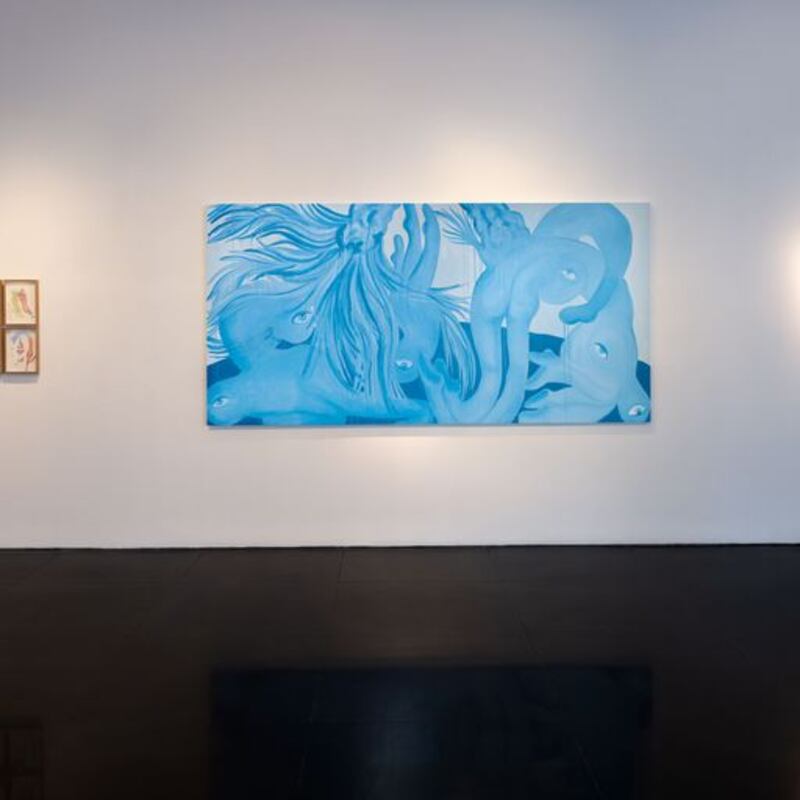Alymamah Rashed went deep into a study of nature and the body to create surreal images.
Her solo exhibition, When My Heart Danced Near Your Mirage at Tabari Artspace in Dubai International Financial Centre, is an experience of serenity and evasive playfulness. It’s a unique examination of the self, the spirt, nature and the connections between the three.
Rashed describes the process of her work as an act of modifying the soul. It sounds like a loaded statement — complex and painful — when the work itself, is neither.
Her work, which encompasses large-scale canvases and smaller pieces, depict dreamlike, romantic images of floating figures through watercolour on paper and oil on linen and cotton canvases.
It is like walking through an oasis, a mirage of perfumed auras where intertwined, hovering cloud and bird-like figures are connected through a playful entanglement of petals and botanical elements. It’s a sensual dance, from one work to the next, a flurry of soft masses with large eyes, watching, inviting, seducing the viewer into a gaze.
Rashed describes her re-emergence to the outside world after the pandemic during the spring in Kuwait, where she was filled with an “intense yearning” to notice her environment and surroundings.
She observed certain flowers, as well as wilted and flourishing trees in random locations across the city and started documenting them.
“I saw the broken trunk of a palm tree in the middle of Kuwait City and it had only one frond left," Rashed tells The National. "It captivated my attention … I saw it as a body.”
At the time, Rashed was reading and researching the work of prominent Kuwait artist Basil Alkazzi who had also once created a series of works in which he painted flowers, linking them to a sense of spirituality.
This felt like an affirmation to Rashed as she was already intrigued by the regional botanical landscape.
From the desert, a place often eclipsed by its own reputation as an arid land and devoid of delicate flora and life, she was drawn into the mesmerising colour palettes of flowers, seeing bodies emerging out of each petal, creating boundless shapes and forms, observing endless ways that nature recreats itself.
Like the desert, the body is also misunderstood, she says. More than bones, muscles and limbs to occupy space, more than thoughts to satisfy our present needs, Rashed used her body as a tool to connect with what she observed, with emotional experiences and existential questions and to let it flow through her.
“I've always used my body as a resource. I make my work based on the story of my body in relation to my femininity, my masculinity, even my relationship to the hijab as well," she says.
"That’s something I do not talk about as much, because I identify myself through having multiple bodies or multiple skins. And I think we all have that.”
Using her own body is a two-fold process. When creating the large-scale watercolours, Rashed sits on the large sheets of paper, where her gestures and movements create images between the pools of water gathering on the sheets.
In the painted works of oil, the images act as a form of documentation stemming from Rashed’s own conceptual gaze directed at her body. She is both articulating through ideas and documenting her thought process, creating the presence of several bodies that morph, float and dance over one another.
They speak to rhetorical questions that Rashed finds herself pondering often.
“I always ask myself how many bodies or how many thoughts do you birth per day? How many thoughts do you demolish per day? And what if one-third of those thoughts became bodies? What would they look like?”
The process of creating work, Rashed says, is a healing and liberating way to connect to herself. While it was always a process that felt natural to her, it intensified during a “healing journey” in 2017 after Rashed was attacked in New York City.
“I had a traumatic situation where my hijab was taken off,” she says. “I don't talk about this very much, only when it's relevant.”
Rashed explains the incident forced her to see her own reality of being an Arab woman in America, in the midst of Donald Trump's US presidency..
Soon after, Rahsed started grad school and was able to process her emotions and converse through her practice.
“Nothing is untold within me. That's because of the process and the relationship that I have with my work is a flowing energy that's endless,” she says.
"It's meant to be a healing, fluctuant energy that is not only gifted to me, but I want to gift it to others as well. My purpose is always to expand your freedom and my freedom, and gift each other that sense of liberation.”
When My Heart Danced Near Your Mirage is on until January 6 at Tabari Artspace in DIFC
